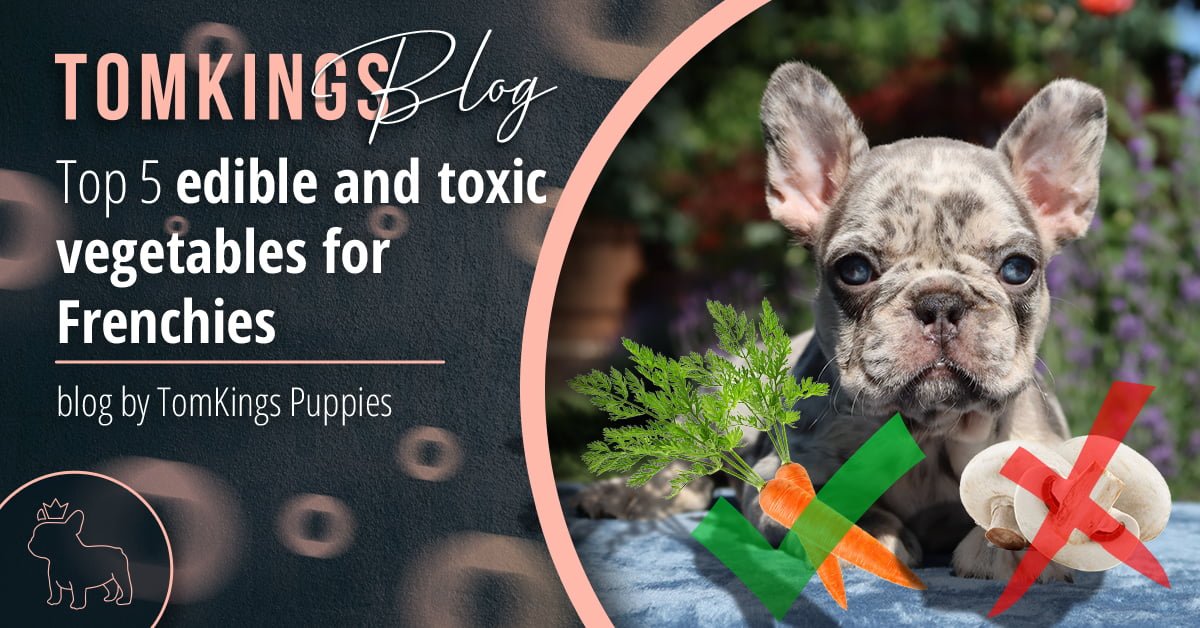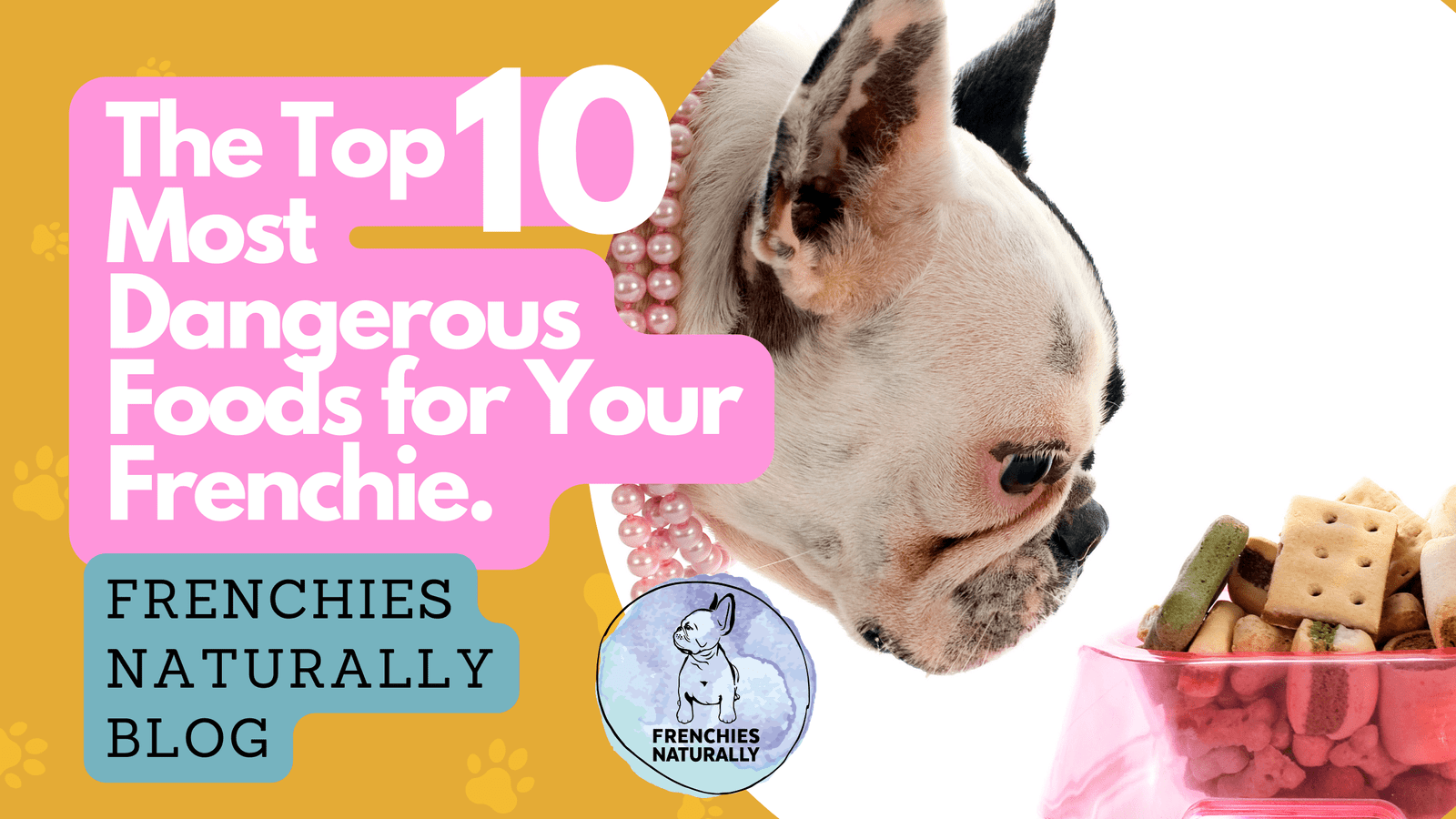French Bulldogs, beloved for their adorable appearance and affectionate nature, can be quite sensitive to certain substances that are toxic to them. It is important for owners to be aware of the potential dangers lurking in their environment to keep their furry companions safe and healthy.
One of the most common types of poisoning in French Bulldogs is caused by ingesting human foods that are toxic to dogs. Foods such as chocolate, grapes, raisins, onions, garlic, and certain artificial sweeteners like xylitol can be highly dangerous and even fatal to French Bulldogs. These substances can lead to symptoms ranging from gastrointestinal distress to severe organ damage. It is crucial to keep these foods out of reach and ensure that your French Bulldog is not exposed to them.
French Bulldogs can be sensitive to certain substances, so it’s important to know what is potentially poisonous to them. Some common items toxic to French Bulldogs include chocolate, grapes, raisins, onions, garlic, alcohol, caffeine, and certain medications. It’s crucial to keep these substances out of their reach to ensure their safety. If you suspect your French Bulldog has ingested something toxic, contact your veterinarian immediately.

The Hidden Dangers: Foods and Substances Poisonous to French Bulldogs
French Bulldogs are popular and beloved pets known for their adorable appearance and affectionate nature. However, they are also prone to certain health issues, and their small size makes them more susceptible to the harmful effects of certain foods and substances. It’s crucial for French Bulldog owners to be aware of the potential dangers and take proactive measures to keep their furry friends safe. In this article, we will explore the various foods and substances that are poisonous to French Bulldogs, helping you keep your four-legged companion out of harm’s way.
1. Chocolate: A Sweet Treat That’s Toxic to French Bulldogs
One of the most well-known toxic foods for dogs is chocolate, and this includes French Bulldogs. Chocolate contains a substance called theobromine, which is toxic to dogs. French Bulldogs are particularly sensitive to theobromine due to their smaller size. Ingesting chocolate can lead to symptoms such as vomiting, diarrhea, increased heart rate, tremors, and in severe cases, seizures and even death. It’s important to keep all chocolate products, including baking chocolate, cocoa powder, and even chocolate-flavored treats, out of your French Bulldog’s reach.
2. Xylitol: A Sugar Substitute That Spells Trouble
Xylitol is a sugar substitute commonly found in sugar-free gum, candy, baked goods, and even some peanut butter brands. While it may be harmless to humans, Xylitol is highly toxic to dogs, including French Bulldogs. Ingesting Xylitol can lead to a rapid release of insulin, causing a dangerous drop in blood sugar levels. Symptoms of Xylitol poisoning in French Bulldogs include weakness, vomiting, seizures, and in severe cases, liver failure. If you suspect your French Bulldog has consumed a product containing Xylitol, it’s crucial to seek immediate veterinary attention.
3. Grapes and Raisins: Small but Dangerous
Grapes and raisins, both commonly found in many households, can be highly toxic to French Bulldogs. Although it is still unclear why these fruits are toxic to dogs, ingestion can lead to kidney failure. Symptoms may include vomiting, diarrhea, decreased appetite, weakness, and increased thirst. It’s best to keep grapes and raisins out of your French Bulldog’s reach and be cautious when choosing treats or food that may contain them.
4. Onions and Garlic: Flavorful Yet Harmful
Onions and garlic are common ingredients found in many cooked dishes and even some pet foods. However, these ingredients can be dangerous to French Bulldogs. Onions and garlic contain compounds that can cause damage to a dog’s red blood cells, leading to anemia. Symptoms may include weakness, pale gums, lack of appetite, elevated heart rate, and collapse. It’s important to avoid feeding your French Bulldog any foods that contain onions or garlic, and always read ingredient labels carefully.
5. Medications: Keep Your French Bulldog Safe
While medications are essential for treating various health conditions, many are toxic to French Bulldogs. Certain medications that are safe for humans can be extremely harmful to dogs. Over-the-counter pain relievers such as acetaminophen and ibuprofen, as well as prescription medications like antidepressants, can have adverse effects on French Bulldogs. It’s crucial to store medications out of your dog’s reach and never administer any medication without consulting a veterinarian.
6. Household Chemicals: Hidden Hazards in Your Home
French Bulldogs are curious creatures that can get into all sorts of mischief around the house. Many household chemicals, including cleaning agents, pest control products, and even certain plants, can be toxic to dogs. It’s important to keep all chemicals safely stored away in cabinets or locked containers. Additionally, be cautious about the plants you have in your home, as many common household plants, such as lilies and aloe vera, can be toxic to dogs.
7. Alcohol: No Sips for French Bulldogs
Alcohol should never be given to French Bulldogs, as it is highly toxic to dogs and can have severe effects. Even small amounts of alcohol can cause problems such as vomiting, diarrhea, difficulty breathing, tremors, and in severe cases, coma or death. It’s essential to keep all alcoholic beverages out of your dog’s reach and be cautious about spills or leftovers at parties or gatherings.
8. Nicotine: Smoking is Bad for French Bulldogs Too
Nicotine, found in cigarettes, vape liquids, and nicotine gum, is toxic to dogs, including French Bulldogs. Ingesting nicotine can lead to symptoms such as vomiting, diarrhea, increased heart rate, tremors, and in severe cases, seizures and death. It’s important to keep all nicotine products securely stored away, and never smoke around your French Bulldog or expose them to secondhand smoke.
9. Avocado: A Delicious Fruit, but Dangerous for Dogs
Avocado is a nutritious fruit for humans, but it can be toxic to dogs, including French Bulldogs. Avocado contains a substance called persin, which can cause vomiting, diarrhea, difficulty breathing, and in severe cases, pancreatitis or heart failure. It’s important to avoid feeding your French Bulldog any avocado, including the fruit itself, guacamole, and products that contain avocado oil.
10. Artificial Sweeteners: A Hidden Danger
Artificial sweeteners such as sorbitol, sucralose, and aspartame, which are found in many sugar-free products, can be harmful to French Bulldogs. Ingesting these sweeteners can lead to symptoms such as digestive upset, diarrhea, and in severe cases, liver damage. When choosing treats or food for your French Bulldog, it’s essential to read ingredient labels to ensure they do not contain any artificial sweeteners.
Conclusion
French Bulldogs are cherished companions, and it’s our responsibility as pet owners to keep them safe and healthy. As you can see, there are many foods and substances that are poisonous to French Bulldogs, and it’s crucial to be vigilant and take precautions to prevent accidental ingestion. To ensure the well-being of your French Bulldog, it’s always best to consult with a veterinarian if you suspect your dog has ingested anything toxic. By being educated and proactive, we can provide our beloved French Bulldogs with a safe and happy life.
Key Takeaways: What is Poisonous to French Bulldogs?
- Chocolate can be toxic to French Bulldogs as it contains a substance called theobromine.
- Grapes and raisins can cause kidney failure in French Bulldogs and should be avoided.
- Xylitol, a sweetener found in gum, candy, and some baked goods, can be deadly for French Bulldogs.
- Onions and garlic can cause anemia and gastrointestinal issues in French Bulldogs.
- Certain medications, such as antidepressants and painkillers, can be poisonous to French Bulldogs.
Frequently Asked Questions
Many pet owners are concerned about the safety of their furry friends, especially when it comes to what they can and cannot consume. French Bulldogs are a popular breed, known for their playful and affectionate nature. To ensure the well-being of your French Bulldog, it’s important to be aware of what substances or foods may be toxic to them. Here are some common questions related to what is poisonous to French Bulldogs.
1. Are grapes and raisins toxic to French Bulldogs?
Grapes and raisins can be extremely harmful to French Bulldogs. These fruits contain a toxic substance that can cause kidney failure in dogs. Even a small amount of grapes or raisins can have serious effects, such as vomiting, diarrhea, and dehydration. If you suspect your French Bulldog has ingested grapes or raisins, it is important to contact your veterinarian immediately for proper medical advice.
It’s crucial to keep grapes and raisins out of your French Bulldog’s reach, as they can be found in various foods, including cakes, cookies, and trail mixes. Be cautious when sharing snacks or treats with your dog, and always read ingredient labels carefully to ensure their safety.
2. Can chocolate be toxic to French Bulldogs?
Yes, chocolate is toxic to French Bulldogs and many other dog breeds. Chocolate contains a substance called theobromine, which dogs cannot metabolize effectively. Theobromine can build up in a dog’s system and lead to various symptoms, including vomiting, diarrhea, rapid breathing, increased heart rate, and even seizures.
It’s important to note that dark chocolate and unsweetened baking chocolate contain higher levels of theobromine compared to milk chocolate. Even a small amount of chocolate can be dangerous, so it’s best to keep all chocolate products out of your French Bulldog’s reach. If your dog accidentally consumes chocolate, contact your veterinarian immediately for guidance.
3. Are onions and garlic poisonous to French Bulldogs?
Yes, onions and garlic can be toxic to French Bulldogs. These common ingredients found in many dishes can cause damage to a dog’s red blood cells, leading to a condition called hemolytic anemia. Symptoms of onion or garlic toxicity may include weakness, pale gums, vomiting, diarrhea, and increased heart rate.
Avoid feeding your French Bulldog any food containing onions or garlic, such as onion soup, garlic bread, or dishes seasoned with these ingredients. It’s important to be cautious about sharing your meals with your dog and always consult a veterinarian if you suspect your French Bulldog has ingested onions or garlic.
4. Can certain household plants be poisonous to French Bulldogs?
Yes, some common household plants can be toxic to French Bulldogs if ingested. Examples of poisonous plants include but are not limited to: lilies, azaleas, tulips, daffodils, and sago palm. Ingesting these plants can cause symptoms such as vomiting, diarrhea, drooling, difficulty breathing, and even organ failure.
To ensure the safety of your French Bulldog, it’s essential to keep toxic plants out of their environment. If you have plants that are potentially toxic, either keep them out of reach or consider replacing them with pet-friendly alternatives. If you suspect your French Bulldog has ingested a poisonous plant, contact your veterinarian immediately for guidance.
5. Are certain medications toxic to French Bulldogs?
Yes, certain medications can be toxic to French Bulldogs. It’s important to remember that dogs have different metabolisms than humans and may react differently to medications. Medications such as ibuprofen, acetaminophen, and certain antidepressants can be toxic to dogs and may cause gastrointestinal issues, liver damage, or even death.
It is essential to store all medications safely out of your French Bulldog’s reach and never give them any medication without consulting a veterinarian first. If you suspect your French Bulldog has ingested medication or is showing signs of toxicity, contact your veterinarian immediately.

In summary, there are several substances that are poisonous to French Bulldogs and should be kept out of their reach. These include chocolate, caffeine, grapes and raisins, onions and garlic, alcohol, certain medications, and xylitol, a sugar substitute.
It’s important for French Bulldog owners to be aware of these potential toxins and to take steps to prevent their dogs from ingesting them. Keeping hazardous substances securely stored, avoiding feeding table scraps, and being cautious about what medications or products are in your dog’s environment can help ensure their safety and well-being.
